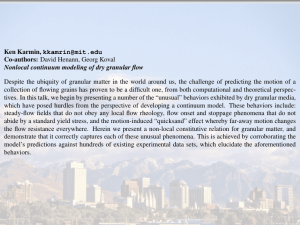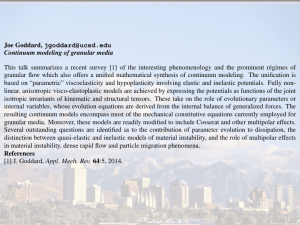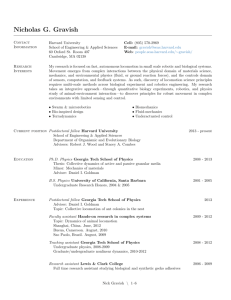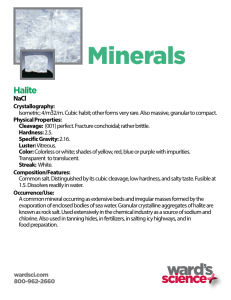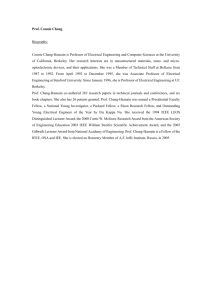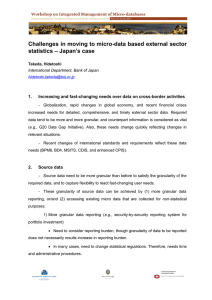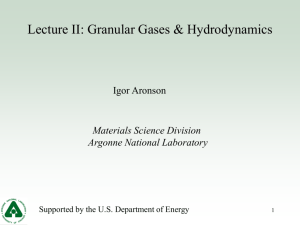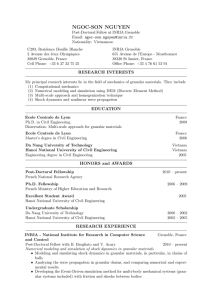Dr. Daniel Goldman is an Associate Professor in the School of
advertisement
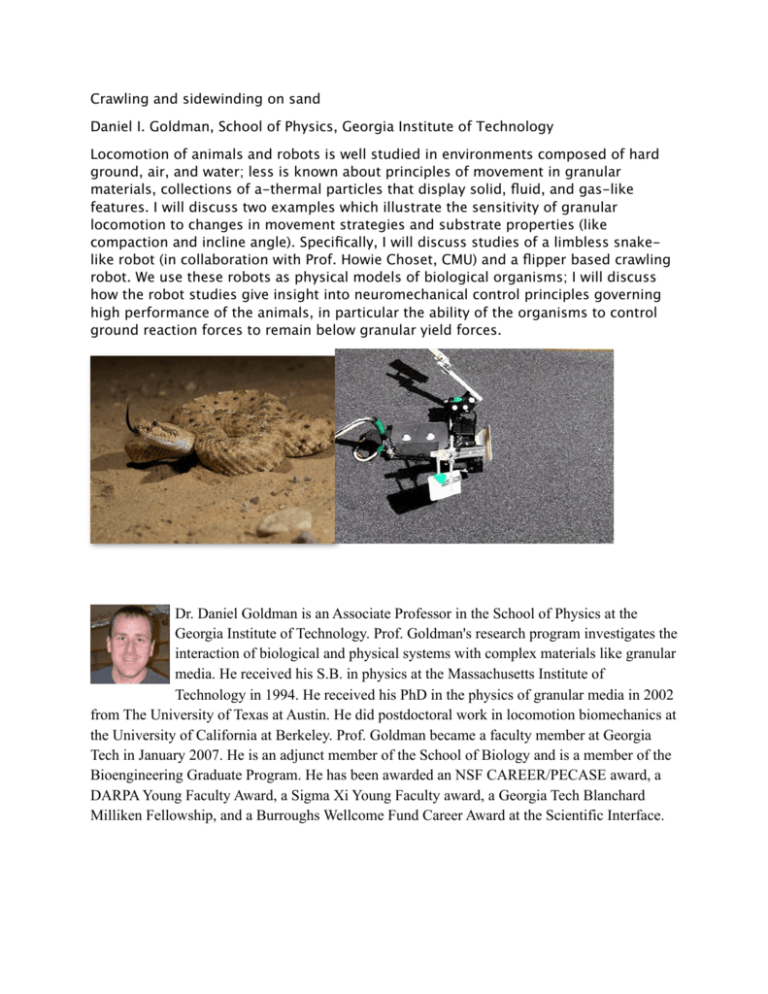
Crawling and sidewinding on sand Daniel I. Goldman, School of Physics, Georgia Institute of Technology Locomotion of animals and robots is well studied in environments composed of hard ground, air, and water; less is known about principles of movement in granular materials, collections of a-thermal particles that display solid, fluid, and gas-like features. I will discuss two examples which illustrate the sensitivity of granular locomotion to changes in movement strategies and substrate properties (like compaction and incline angle). Specifically, I will discuss studies of a limbless snakelike robot (in collaboration with Prof. Howie Choset, CMU) and a flipper based crawling robot. We use these robots as physical models of biological organisms; I will discuss how the robot studies give insight into neuromechanical control principles governing high performance of the animals, in particular the ability of the organisms to control ground reaction forces to remain below granular yield forces. Dr. Daniel Goldman is an Associate Professor in the School of Physics at the Georgia Institute of Technology. Prof. Goldman's research program investigates the interaction of biological and physical systems with complex materials like granular media. He received his S.B. in physics at the Massachusetts Institute of Technology in 1994. He received his PhD in the physics of granular media in 2002 from The University of Texas at Austin. He did postdoctoral work in locomotion biomechanics at the University of California at Berkeley. Prof. Goldman became a faculty member at Georgia Tech in January 2007. He is an adjunct member of the School of Biology and is a member of the Bioengineering Graduate Program. He has been awarded an NSF CAREER/PECASE award, a DARPA Young Faculty Award, a Sigma Xi Young Faculty award, a Georgia Tech Blanchard Milliken Fellowship, and a Burroughs Wellcome Fund Career Award at the Scientific Interface.
